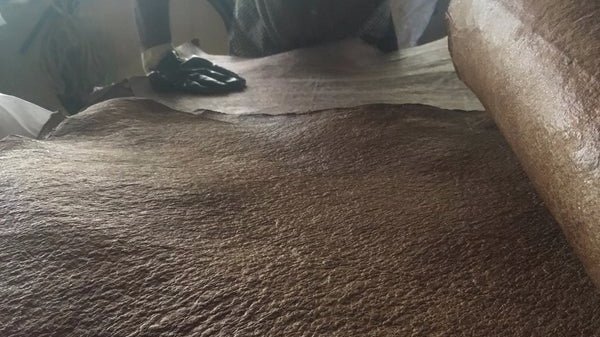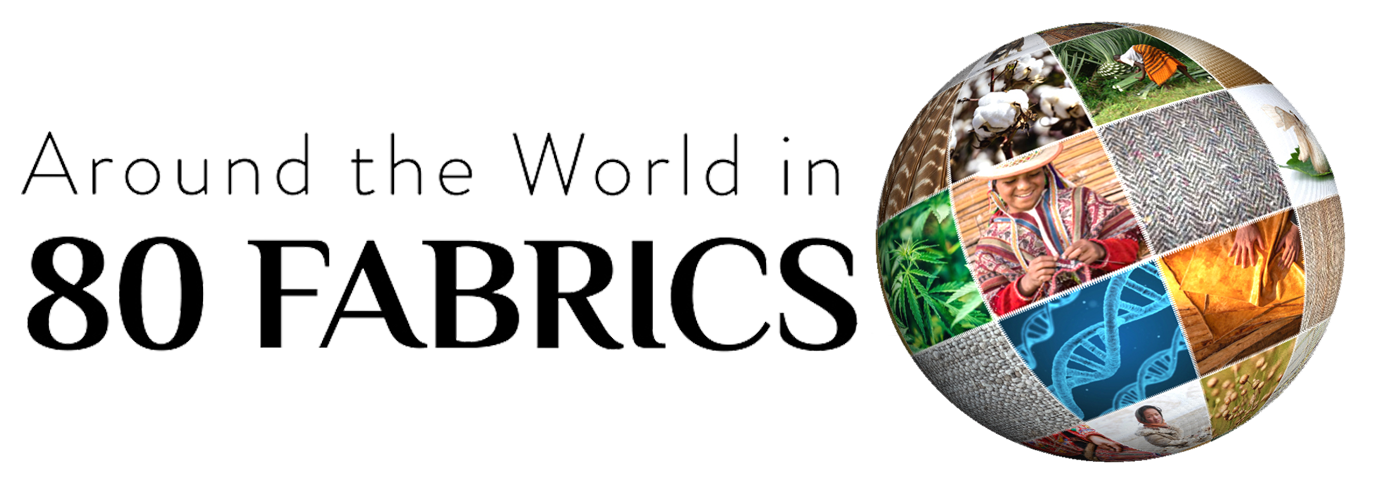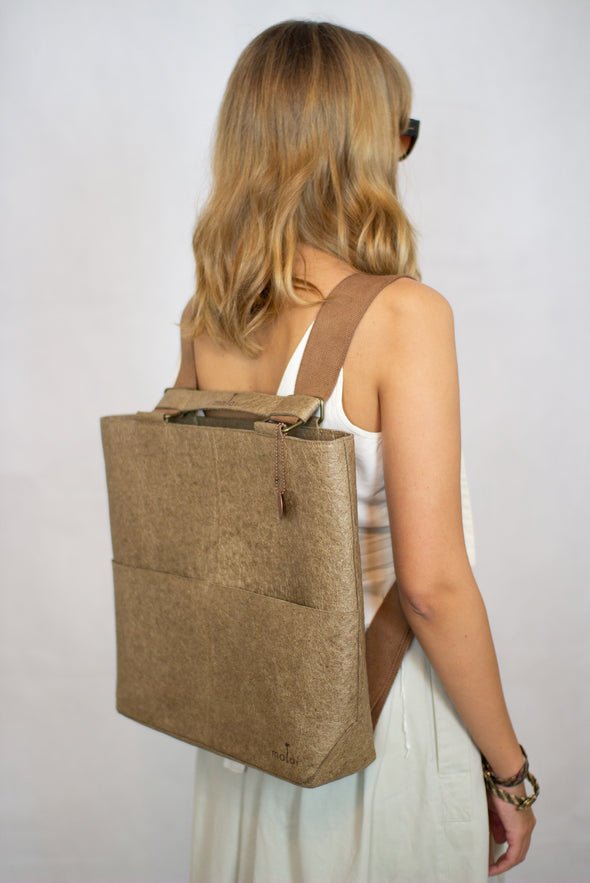
FABRIC: MALAI,COCONUT
Region: India
Fabric Name:
Malai
Origin:
Bio-composite with coconut (Coco Nucifera)
Who made our fabric:
Malai
Natural history and ecology:
Malai fabric is made from waste coconut water Cocos nucifera in Kochi, India. From one small coconut-processing unit, manufacturers can collect 4000 liters of water each day, to be used as a feedstock to grow 25kg of cellulose and 320 sq meters of Malai material.
What makes this so special:
The sheets formed during the fermentation process are enriched with natural fibers, gums, and resins to create a more durable and flexible material. This material can then be formed into flat sheets, comparable to paper or leather, and dyed with natural plant dyes.
Coconut water turned into durable fabric? YES.
Natural Dyes in this fabric…
COMMON NAME: Cutch
SCIENTIFIC NAME: Acacia catechu
PART USED: Wood
POTENTIAL MEDICINAL PROPERTIES: antimicrobial, anti-inflammatory, antifungal, coagulant, antidiarrheal, astringent, and wound healing - has been used to treat obesity, diabetes, and maintain oral hygiene
COMMON NAME: Pomegranate
SCIENTIFIC NAME: Punico granaturn,
PART USED: Fruit skins
POTENTIAL MEDICINAL PROPERTIES: antimicrobial, antioxidant anticancer, anti-inflammatory
COMMON NAME: Marigold
SCIENTIFIC NAME: Togetes patula
PART USED: Flower
POTENTIAL MEDICINAL PROPERTIES:
treat upset stomach, abdominal cramps, constipation and inflamed and painful eyes - useful against fever and convulsions - leaves are used to cure hemorrhoids, kidney problems, muscular pain.
By starting with agricultural waste, Malai has created an entirely natural bio-composite product, free of plastics, that is fully biodegradable at the end of its life.
Image courtesy of Malai

“While our materials can’t compare to the price of polyurethane or PVC, fortunately there are enough people willing to try something different that’s sustainable and pay a little bit more for this choice. It is encouraging to see that there is a demand for Malai Eco products, and a growing cohort of souls willing to wrap recycled materials more deeply into their lives.”
— Zuzana Gombosova / Malai Eco
Zuzana Gombosova
Slovakian designer and material researcher Zuzana Gombosova, alongside product designer Susmith, founded Malai, a company dedicated to recycling coconut water waste. Gombosova had been working with bacterial cellulose for a few years since shifting her focus from fashion to microbes, after learning about the fashion industry’s harm, before meeting her soon-to-be-business partner Susmith in northern India. She was studying the traditional bacterial-cellulose growth process from the Philippines, where they were growing bacterial-cellulose on waste from coconuts. Gombosova went looking for a possibility to use this biological process in India. In Southern India, coconut farmers remove the white flesh of the fruit and in the process, discard up to four thousand liters of water per each coconut processing unit. This water is normally released into a drainage system, which acidifies and pollutes the water. Gombosova and Susmith’s company Malai takes this water, sterilizes it, and combines it with their bacterial culture. The bacteria feeds off of the natural nutrient-rich water for twelve to fourteen days and once that time is up, the fermented sheet is refined. The company’s team enriches it with natural fibers, resins, and gums to create a more flexible and durable product. They can then mold them, design them, differentiate their thickness and texture, and dye them naturally and plant-based using the Natural Dyes Lab Company in Northern India. Completely vegan, Malai is like a leather or paper material, used for a vast amount of products. Gombosova, Susmith, and their team have been experimenting with levels of bacterial cellulose and fibers in order to combat the increase of demand for natural fibers. They work diligently and sustainably to make Malai an optimal choice of material.






